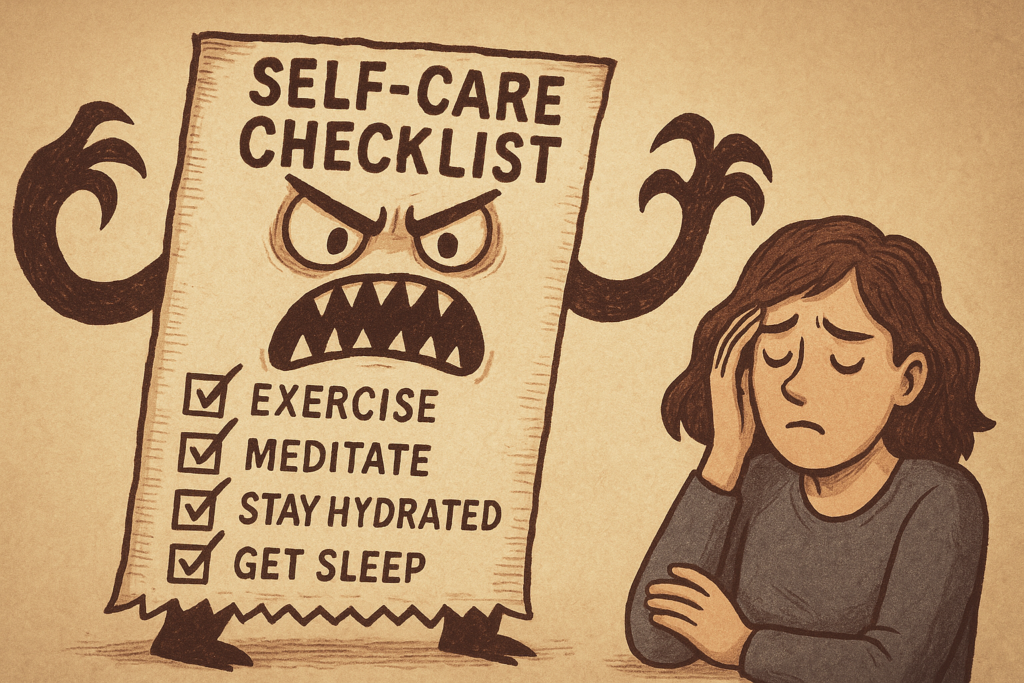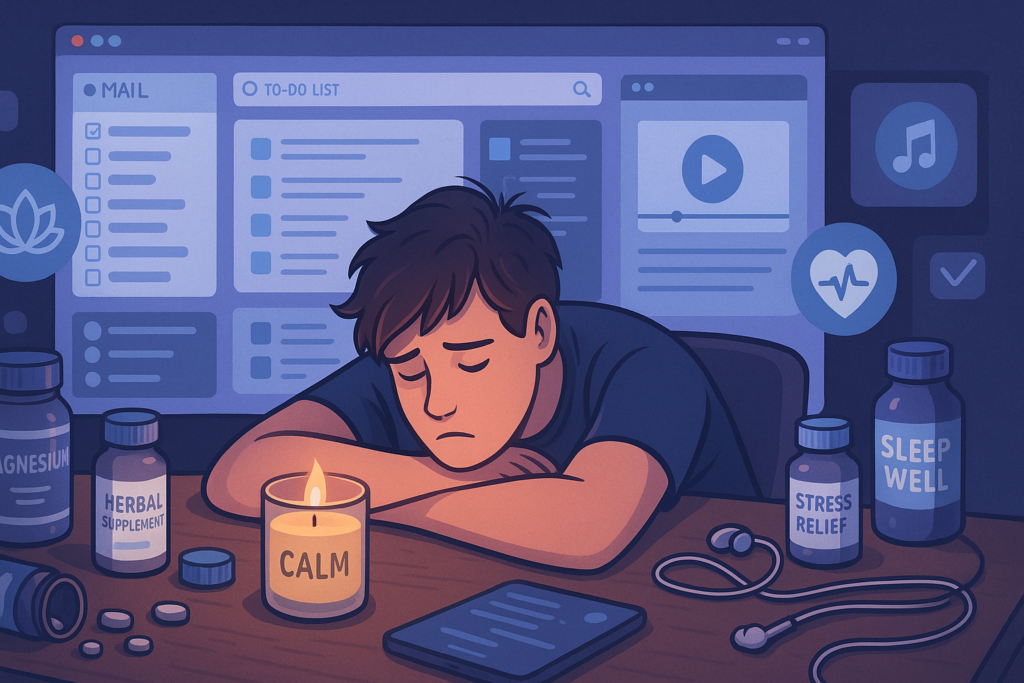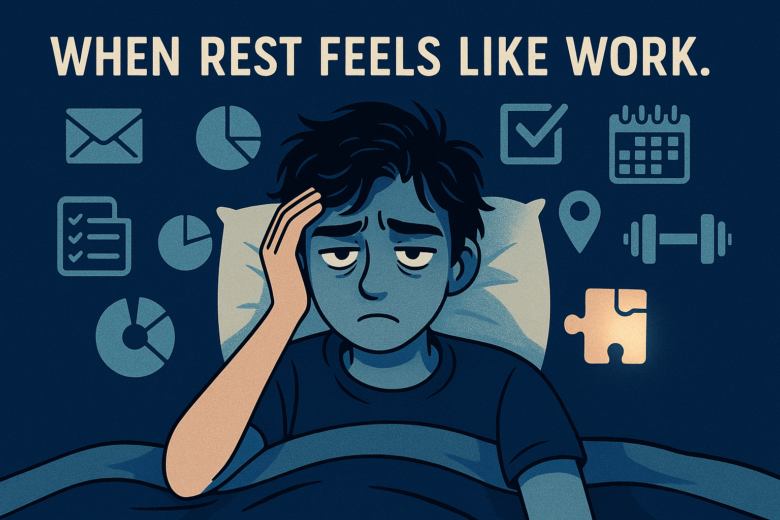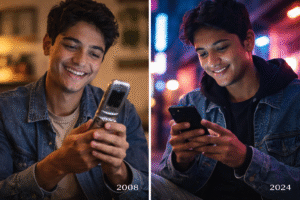Fun Fact: According to a 2025 Deloitte survey, 40% of Gen Z and 35% of millennials report feeling stressed all or most of the time, highlighting the pervasive nature of burnout among younger generations.
You’ve finished your work, closed your laptop, and lit a candle. Maybe you’ve queued up a meditation app, made some tea, or settled into a cozy Netflix binge. But instead of feeling relaxed, you’re anxious. Restless. Guilty even.
Sound familiar?
Welcome to the burnout generation, where even rest has become performative, scheduled, and—ironically—exhausting. This blog, “The Burnout Generation: Why Even Rest Feels Like Work,” explores why taking a break no longer feels like taking a break. And why that should alarm us more than it does.
Burnout Isn’t Just Stress—It’s Systemic
Let’s be clear: burnout is not just “feeling tired.” According to the World Health Organization (WHO), burnout is a syndrome resulting from chronic workplace stress that has not been successfully managed. It’s characterized by:
- Emotional exhaustion
- Depersonalization (feeling cynical or detached)
- Reduced personal accomplishment
But here’s the twist: burnout is no longer confined to workplaces. It’s leaking into personal life, parenting, activism, dating, and even leisure.
For Millennials and Gen Z—born into recession, climate anxiety, gig economies, and the tyranny of productivity apps—burnout has become a cultural identity.
How Did Rest Become So Hard?
Productivity Culture Runs Deep
We were raised to believe time is money. That every hour must be monetized or optimized. As a result, rest now feels wasteful—unless it’s “productive rest” (think yoga with goals, mindfulness for better focus, or sleep tracked via Fitbit).
Even leisure has KPIs (Key Performance Indicators). Reading must be “self-improvement.” Vacations must be Instagrammable. Breaks must come with a benefit.
The Hustle Narrative Won’t Die
“Rise and grind.” “Sleep is for the weak.” “You have the same 24 hours as Beyoncé.”
These slogans glorify exhaustion. They make you feel guilty for resting. They turn basic self-care into a revolutionary act.
Digital Always-On Culture
There’s no real “off” anymore. Even when you’re not working, your phone is. Notifications blur the line between office and home, between now and tomorrow. You may log off Zoom, but Slack whispers from your pocket.
The Fear of Falling Behind
Scrolling through LinkedIn or Instagram shows you classmates launching startups, getting promotions, traveling the world. The unspoken message: if you’re resting, you’re losing.
This fuels Productivity FOMO (Fear of Missing Out)—a uniquely modern neurosis.

The Neuroscience of Exhaustion
Burnout isn’t just emotional—it’s physical. Research from the University of California, Berkeley shows that chronic stress floods the brain with cortisol, shrinking the prefrontal cortex (which handles decision-making) and enlarging the amygdala (which processes fear).
This means that even when you try to rest, your brain might not let you.
Neuroscientist Dr. Sahar Yousef describes this as “cognitive fatigue”—when your brain becomes inefficient at switching off. And the more you push through it, the harder it becomes to recover.
Case Study: The “Perfect” Self-Care Routine
Take 28-year-old Shreya, a content strategist from Delhi. She wakes up at 6 AM, journals, does yoga, eats chia seed pudding, and avoids screens till 8 AM. Sounds peaceful, right?
But she admits she’s exhausted. “It’s like I’m doing rest the way I do work—following a checklist. If I miss a step, I feel like I failed at relaxing.”
Self-care, for many, has become just another job.
When Burnout Becomes Identity
Millennials joke about burnout. Memes circulate with phrases like “perpetually tired” or “emotionally bankrupt.” But underneath the humor is resignation.
We no longer distinguish between our exhaustion and ourselves. Burnout isn’t a phase—it’s a personality trait. And that’s dangerous, because it normalizes being unwell.
In a 2019 piece by BuzzFeed News, writer Anne Helen Petersen coined the term “The Burnout Generation.” She described how even simple tasks—like mailing a letter or booking an appointment—feel impossible when your mental energy is perpetually depleted.
How Capitalism Co-Opts Rest
Even rest isn’t safe from capitalism. Wellness has become a $4.4 trillion global industry. Apps like Calm, Headspace, and companies like Goop (a wellness brand founded by Gwyneth Paltrow) sell rest as a lifestyle—accessible only if you can afford it.
This commodification turns peace into privilege.
And it makes rest feel like something you need to buy, schedule, or perform—not something innate, deserved, or free.

Is There a Way Out?
Here’s the hopeful part: rest doesn’t have to feel like work. But it does require unlearning:
- Redefine Rest
Rest isn’t just sleep or meditation. It’s anything that restores your energy—cooking, daydreaming, walking aimlessly, even doing nothing. - Reject Productivity Pressure
You don’t have to “earn” rest. You don’t need to justify your downtime. - Practice Active Recovery
Instead of passive scrolling, try activities that calm your nervous system—like painting, gardening, or talking to a friend. - Set Tech Boundaries
Turn off notifications. Create device-free time zones. Let silence return. - Allow for Imperfection
Your rest doesn’t have to be perfect. You don’t need the “best” morning routine or the most mindful nap. You just need space.
Conclusion: Rest Is Resistance
“The Burnout Generation: Why Even Rest Feels Like Work” is more than a critique—it’s a wake-up call.
If we don’t reclaim rest as a right, not a reward, we risk burning through our 20s, 30s, and 40s on autopilot—never pausing to live.
Rest isn’t lazy. It isn’t indulgent. It’s a deeply human need—one that capitalism forgot but biology remembers.
So breathe. Do nothing. And let that be enough.
Author’s Note
If you’ve ever felt guilty about taking a nap, skipping a workout, or just staring into space—this blog is for you. Your worth is not measured in output. You’re allowed to rest, not just when you’re done, but because you’re alive.
G.C., Ecosociosphere contributor.
References and Further Reading
- Anne Helen Petersen – “How Millennials Became the Burnout Generation” (BuzzFeed)
- World Health Organization – Burn-out an “occupational phenomenon”
- Calm – Meditation App
- 2024 Gen Z and Millennial Survey
- Burnout in conservation – Conservation Careers Podcast. https://player.captivate.fm/episode/f2d63d16-6e6b-48e2-83d7-03697afad406




